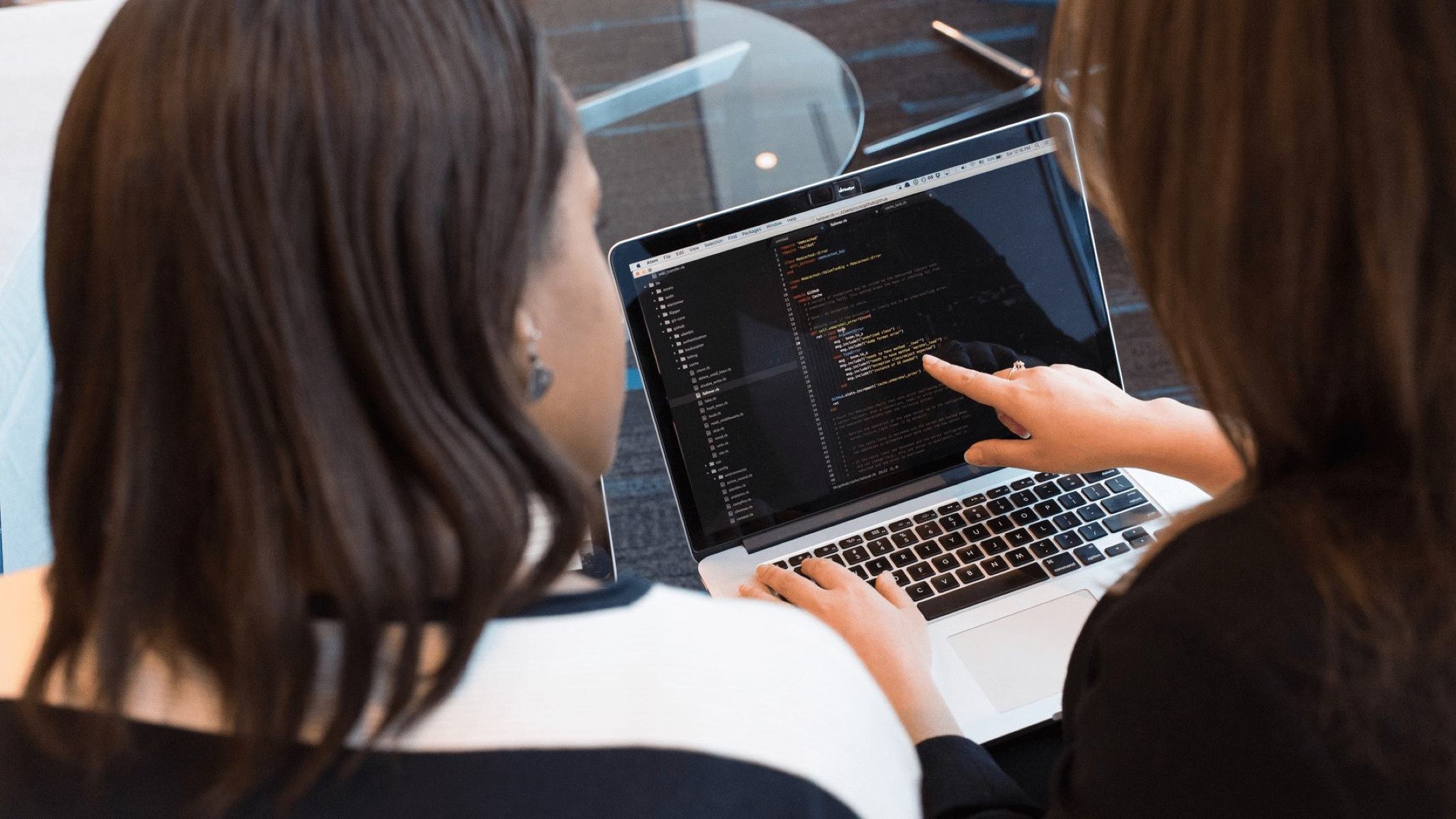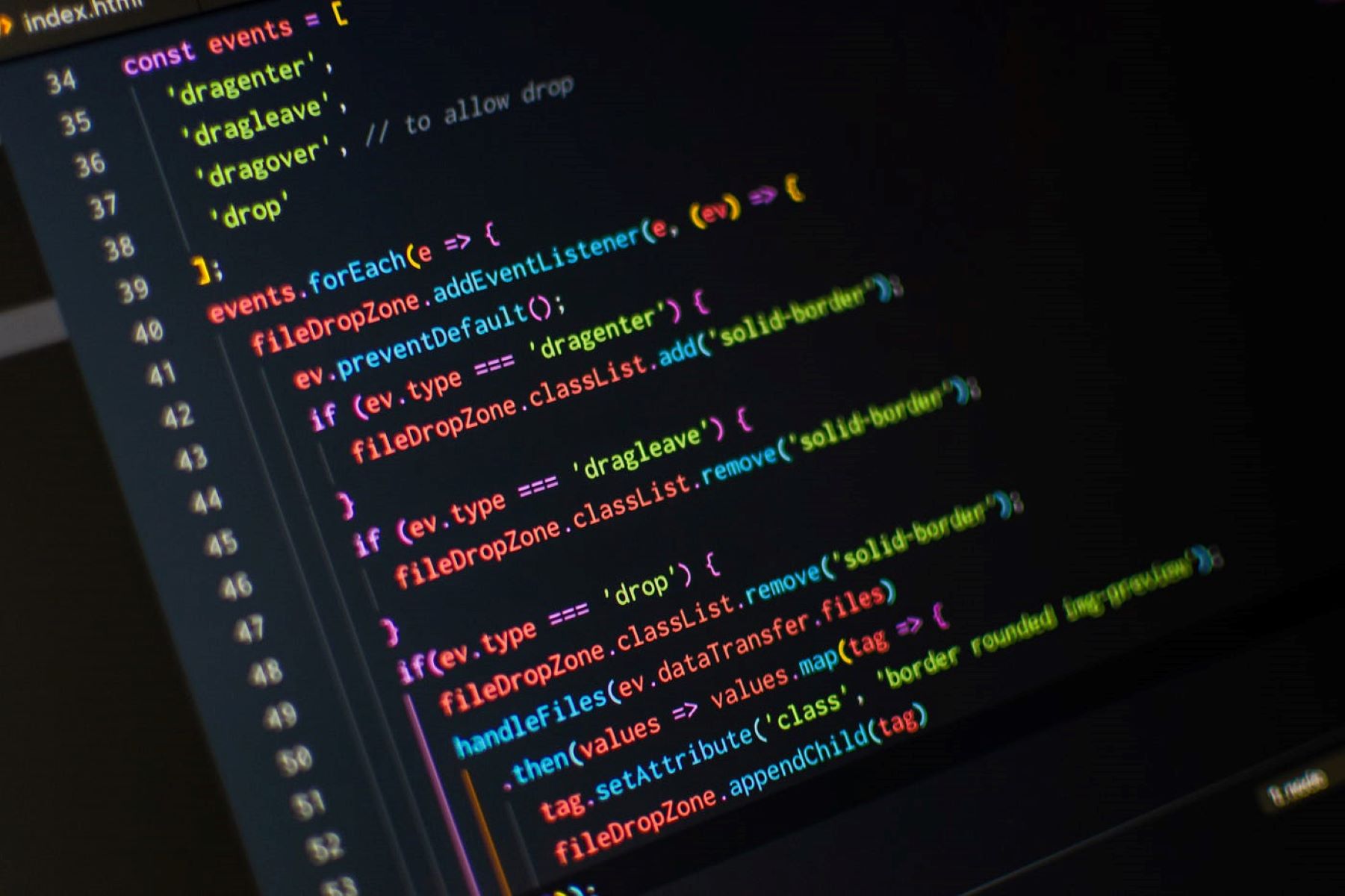Introduction
Welcome to the exciting world of coding bootcamps! If you’re considering a career in programming or looking to upgrade your skills, attending a coding bootcamp can be a fantastic way to gain the knowledge and experience you need in a short period of time.
But how long exactly does a coding bootcamp last? This is a common question among aspiring developers, and in this article, we will explore the factors that determine the duration of a coding bootcamp and help you choose the right program for your needs.
Coding bootcamps have gained popularity in recent years as an intensive and immersive alternative to traditional computer science degrees. These programs are designed to teach you the fundamentals of coding and equip you with the practical skills necessary to start a career in the tech industry.
While the length of a coding bootcamp can vary, most programs typically range from a few weeks to a few months. However, it’s important to note that there is no one-size-fits-all answer to this question, as the duration of a bootcamp depends on several factors.
In the following sections, we will discuss the factors that can influence the length of a coding bootcamp, including the intensity of the program, the curriculum, and the learning style. We will also explore the differences between full-time and part-time programs, as well as the advantages and disadvantages of intensive versus extended bootcamps.
Additionally, we will look at some popular coding bootcamps and their respective durations to give you a better idea of the options available. Ultimately, we aim to provide you with the necessary information to choose the coding bootcamp duration that best suits your schedule, learning style, and career goals.
So, whether you’re looking to switch careers or enhance your current skillset, let’s delve into the world of coding bootcamps and find out how long it takes to become a proficient programmer!
What is a coding bootcamp?
A coding bootcamp is an intensive and immersive training program that aims to teach individuals the skills and knowledge required to become a software developer or programmer. These programs have grown in popularity as an alternative to traditional college degrees, offering a more practical and focused education in a shorter period of time.
Coding bootcamps are typically structured to provide a comprehensive education in programming languages, web development, mobile app development, and other relevant technologies. They are designed to equip students with the skills needed to enter the job market or advance their careers in the tech industry.
Unlike traditional educational institutions, coding bootcamps are known for their hands-on, project-based approach. Students learn through a combination of lectures, coding exercises, and real-world projects, allowing them to apply their skills in a practical setting.
One of the key advantages of coding bootcamps is their focus on industry-relevant skills. Many bootcamps collaborate with industry professionals and companies to ensure that their curriculum aligns with current industry standards and demands. This enables students to gain knowledge and experience in tools, frameworks, and technologies that are in high demand in the job market.
Coding bootcamps are often associated with the tech industry, where there is a high demand for skilled software developers. However, they are not limited to aspiring programmers. Bootcamps also cater to individuals who want to enhance their coding skills or gain a basic understanding of programming to pursue other career paths, such as data analysis, UX design, or project management.
In addition to technical skills, coding bootcamps also aim to develop other essential professional skills, such as problem-solving, collaboration, and communication. These skills are crucial in the tech industry, where teamwork and effective communication play a vital role.
It’s important to note that coding bootcamps are not standardized, and their structure and curriculum can vary. Some bootcamps may specialize in specific programming languages, while others may have a broader curriculum covering multiple areas of technology. Additionally, bootcamps may differ in terms of pace, duration, and teaching methodology.
In the next section, we will explore the factors that determine the duration of a coding bootcamp, helping you understand the different options available and choose a program that aligns with your goals and constraints.
How long is a coding bootcamp?
The duration of a coding bootcamp can vary significantly depending on multiple factors, including the program’s intensity, curriculum, and the desired level of proficiency. While most coding bootcamps typically range from a few weeks to several months, the exact length can differ from one program to another.
Generally, full-time coding bootcamps have a shorter duration compared to part-time programs. Full-time bootcamps usually require students to dedicate their entire day to learning and can last anywhere from 8 to 16 weeks. These intensive programs provide an immersive experience, allowing students to focus solely on their coding education.
On the other hand, part-time coding bootcamps are designed for individuals who need a more flexible schedule, such as working professionals or students. These programs typically take place in the evenings or weekends and can extend from 12 to 24 weeks or longer. Part-time bootcamps offer a more balanced approach, allowing students to learn coding skills while still attending to other commitments.
The duration of a coding bootcamp can also vary based on the depth and breadth of the curriculum. Some bootcamps may specialize in a specific programming language or technology stack, offering a more focused education that can be completed in a shorter time frame. These specialized bootcamps may last anywhere from 4 to 12 weeks.
Alternatively, comprehensive bootcamps that cover a wider range of programming languages, frameworks, and technologies may have a longer duration. These programs aim to provide a holistic understanding of various coding concepts and can last from 14 to 24 weeks, sometimes even longer.
It’s important to consider your personal learning style and goals when determining the length of a coding bootcamp that suits you. If you prefer an immersive and fast-paced learning experience, a shorter duration full-time bootcamp might be the right choice. However, if you require a more flexible schedule or prefer a more comprehensive curriculum, a longer duration part-time bootcamp may be the better option.
Furthermore, it’s essential to keep in mind that the duration of a coding bootcamp is just one aspect to consider. The quality of instruction, mentors, industry connections, and post-graduation support also play a significant role in your overall learning experience and future success as a programmer.
In the following sections, we will discuss popular coding bootcamps and their respective durations, giving you a better idea of the range of options available. This information will assist you in making an informed decision about the coding bootcamp duration that aligns with your goals and circumstances.
Factors that determine the duration of a coding bootcamp
Several factors can influence the duration of a coding bootcamp, making it important to consider these elements when choosing a program. Understanding these factors can help you determine the most suitable bootcamp duration for your specific needs and constraints. Here are some key factors to consider:
1. Intensity and Hours of Instruction: The intensity of a bootcamp, whether it’s full-time or part-time, directly affects its duration. Full-time bootcamps typically have longer daily hours of instruction and require a more immersive commitment. Part-time bootcamps, on the other hand, have fewer hours per week, allowing for a more flexible learning schedule.
2. Curriculum Complexity: The complexity and breadth of the curriculum can also impact the bootcamp duration. Bootcamps that cover a broad range of programming languages, frameworks, and technologies generally have a longer duration. Conversely, bootcamps specializing in a specific technology or programming language may have a shorter duration.
3. Prior Experience and Knowledge: A bootcamp’s duration may vary depending on the level of prior experience and knowledge required. Some bootcamps cater to beginners, assuming no prior coding knowledge, while others may have prerequisites or more advanced pre-work that can affect the overall duration of the program.
4. Learning Style and Pace: Every individual has a unique learning style and pace. Some students may prefer an accelerated and fast-paced learning environment, while others may require a more gradual and spaced-out approach. Bootcamps offer both full-time and part-time options to accommodate these different learning styles.
5. Project-Based Learning: Many coding bootcamps emphasize project-based learning, where students apply the concepts and skills they learn to real-world projects. The number and complexity of these projects can impact the overall duration of the bootcamp, as more projects may require additional time for completion.
6. Support and Mentorship: The presence of dedicated instructors, mentors, and support systems can influence the bootcamp duration. Bootcamps that provide ample support and mentorship opportunities can help students progress faster and overcome challenges more effectively, potentially shortening the overall duration of the program.
7. Job Placement and Post-Graduation Support: Some bootcamps offer job placement assistance and post-graduation support, helping students secure employment in the tech industry. The inclusion of these services may indirectly affect the bootcamp duration, as the program may allocate time for career development activities.
By considering these factors, you can better evaluate different coding bootcamp options and choose a duration that aligns with your goals, learning style, and other personal constraints. It’s crucial to thoroughly research and understand these factors in order to make an informed decision and optimize your coding education experience.
Full-time vs part-time coding bootcamps
When considering a coding bootcamp, one important decision to make is whether to enroll in a full-time or part-time program. Each option offers its own advantages and considerations, and understanding the differences can help you determine the best fit for your learning style and schedule.
Full-time Coding Bootcamps:
Full-time coding bootcamps require a significant commitment of time and energy as students immerse themselves fully in the learning process. These programs typically have a duration of 8 to 16 weeks, during which students dedicate their entire day to attending lectures, completing coding exercises, and working on projects. Here are some key points to consider about full-time bootcamps:
- Accelerated Learning: Full-time bootcamps provide an intense and focused learning experience, allowing students to quickly acquire new coding skills and knowledge.
- Immersive Environment: By dedicating all their time to the bootcamp, students can fully immerse themselves in the material and easily maintain their focus on learning.
- Quicker Career Transition: Being able to complete a bootcamp in a shorter period of time means that students can transition into a new career or advance their existing career faster.
- Higher Intensity: The fast-paced nature of full-time bootcamps can be demanding and require strong dedication and discipline from students to keep up with the rigorous curriculum.
- Less Flexible Schedule: Full-time bootcamps may not be suitable for those who have work or family obligations that require time during regular business hours.
Part-time Coding Bootcamps:
Part-time coding bootcamps cater to individuals who seek to learn coding skills while balancing other commitments, such as work or personal obligations. These programs typically have a longer duration of around 12 to 24 weeks, and classes are usually held in the evenings or on weekends. Here are a few key considerations for part-time bootcamps:
- Flexible Schedule: Part-time bootcamps are designed to accommodate individuals who cannot commit to a full-time program, allowing them to continue working or managing other responsibilities during the day.
- Gradual Learning Pace: The extended duration of part-time bootcamps provides a more gradual learning pace, allowing for deeper understanding and the opportunity to practice coding concepts between sessions.
- Less Intense: The reduced hours per week compared to full-time bootcamps make part-time programs less demanding, providing students with more time for self-study and practice.
- Extended Time Commitment: Due to the longer duration, part-time bootcamps require a more sustained commitment over several months, and students must ensure they can dedicate the necessary time and effort.
Whether you choose a full-time or part-time bootcamp depends on your individual circumstances, learning style, and desired pace of learning. If you have the flexibility to commit to a full-time program and prefer an immersive and fast-paced experience, a full-time bootcamp might be the ideal choice. On the other hand, if you need to balance coding education with other commitments or prefer a more gradual learning approach, a part-time bootcamp may suit you better.
Ultimately, both full-time and part-time bootcamps can provide an immersive and comprehensive learning experience, and the decision should be based on what works best for your personal circumstances and goals.
Intensive vs extended coding bootcamps
When exploring coding bootcamp options, you may come across the terms “intensive” and “extended” bootcamps. Understanding the differences between these two formats can help you select the one that aligns with your learning style, goals, and availability. Let’s explore the characteristics of each:
Intensive Coding Bootcamps:
Intensive coding bootcamps are designed to provide a condensed, highly focused learning experience within a shorter duration. These programs typically last around 8 to 16 weeks, often with a full-time commitment. Here are some key features of intensive bootcamps:
- Accelerated Learning: Intensive bootcamps offer a fast-paced curriculum, allowing students to quickly acquire skills and knowledge in a condensed timeframe.
- Immersive Environment: By dedicating full-time hours to the bootcamp, students can fully immerse themselves in the learning process, resulting in a more immersive and focused experience.
- Rapid Career Transition: The shorter duration of intensive bootcamps means that graduates can enter the job market sooner, enabling a quicker career transition.
- High Intensity: The concentrated nature of intensive bootcamps requires students to exhibit strong dedication, discipline, and the ability to manage a high workload.
- Ongoing Commitment: To keep up with the fast pace, intensive bootcamp students often need to dedicate additional time for self-study and practice outside of class hours.
Extended Coding Bootcamps:
Extended coding bootcamps provide a more gradual and flexible learning approach, spreading the curriculum over an extended duration. These programs typically last around 12 to 24 weeks, with part-time schedules that accommodate individuals with work or other commitments. Here are some characteristics of extended bootcamps:
- Flexible Schedule: Extended bootcamps cater to those who cannot commit full-time, offering evening or weekend classes that allow participants to balance learning with work or other obligations.
- Deeper Understanding: The longer duration of extended bootcamps allows for a more in-depth exploration of coding concepts and additional time for practice and reinforcement.
- Less Intense: Extended bootcamps typically have fewer weekly hours, making them less demanding and providing students with more time for self-paced learning and reflection.
- Opportunity for Continued Work: The part-time nature of extended bootcamps allows participants to continue working or managing other responsibilities during the program.
- Networking and Collaboration: The extended duration of these bootcamps provides a longer period for students to build relationships, network with peers and industry professionals, and engage in collaborative projects.
Choosing between an intensive or extended bootcamp depends on your personal circumstances, learning preferences, and availability. If you are able to commit full-time and thrive in an immersive, fast-paced environment, an intensive bootcamp may be the right choice. Conversely, if you require a more flexible schedule or prefer a slower-paced learning approach that allows for deeper understanding, an extended bootcamp could be a better fit.
Ultimately, both intensive and extended bootcamps offer effective pathways towards gaining coding skills. It’s important to assess your own learning style, availability, and desired learning pace to select the bootcamp format that will optimize your learning experience and help you achieve your coding goals.
Popular coding bootcamps and their durations
There are numerous coding bootcamps available, each offering unique programs with different durations. To give you an idea of the options available, let’s explore a few popular coding bootcamps and their respective durations:
1. General Assembly: General Assembly is a well-known coding bootcamp that offers a range of programs in various tech-related fields. Their immersive coding bootcamp, known as the Software Engineering Immersive, typically lasts 12 weeks and provides a comprehensive education in full-stack web development.
2. Flatiron School: Flatiron School offers coding bootcamps focused on software engineering, data science, and other tech disciplines. Their full-time software engineering bootcamp lasts for 15 weeks and covers front-end and back-end development, while their part-time program extends over 20 weeks.
3. Le Wagon: Le Wagon is a globally recognized coding bootcamp with campuses in multiple countries. Their full-time web development bootcamp runs for 9 weeks, providing an intensive education in full-stack web development.
4. App Academy: App Academy is an immersive coding bootcamp specializing in software engineering and web development. Their full-time program has a duration of 16 weeks, during which students receive training in coding languages, frameworks, and real-world industry practices.
5. Lambda School: Lambda School offers online coding bootcamps in software engineering, data science, and other tech disciplines. Their full-time programs typically span around 9 to 12 months, offering a more extended but comprehensive learning experience.
It’s important to note that bootcamp durations can vary even within the same institution. Program lengths are subject to change, and different bootcamps may offer alternative formats, such as part-time or self-paced options.
When researching coding bootcamps, it’s recommended to explore the specific programs and review their course content, teaching methodologies, and post-graduation support in addition to the duration. Consider your goals, learning style, and availability to select a bootcamp that best aligns with your needs.
Take advantage of the numerous online resources, reviews, and alumni testimonials to gain insights into the quality and effectiveness of different bootcamps. Furthermore, reach out to admissions representatives and attend information sessions to gather more information and make an informed decision about the coding bootcamp that suits you best.
How to choose the right coding bootcamp duration for you
Choosing the right duration for a coding bootcamp is an important decision that can greatly impact your learning experience and success as a coder. To help you make an informed choice, consider the following factors when selecting a bootcamp duration:
1. Learning Style: Reflect on your preferred learning style. Do you thrive in a fast-paced, immersive environment? Or do you prefer a more gradual and flexible learning approach? Understanding how you learn best can guide you towards a bootcamp duration that aligns with your learning preferences.
2. Time Availability: Evaluate your current commitments and availability. Full-time bootcamps require a significant time commitment, while part-time programs allow for a more balanced schedule. Assess your work, family, or other obligations to determine which bootcamp duration is realistically feasible for you.
3. Prior Coding Knowledge and Experience: Consider your existing coding knowledge and experience. If you are a beginner, you may prefer a bootcamp with a longer duration that covers the foundational concepts more thoroughly. If you have some coding experience, a shorter duration bootcamp focused on specialized skills could be suitable.
4. Career Goals: Clarify your career goals and the specific skills you want to acquire. Research the job market and industry demands to identify the programming languages, frameworks, or technologies that are in high demand. Choose a bootcamp duration that aligns with the skills you need to achieve your career goals.
5. Bootcamp Reputation and Curriculum: Thoroughly research the reputation and curriculum of different bootcamps. Read reviews, testimonials, and success stories from alumni to gain insight into the quality and effectiveness of the programs. Consider whether the bootcamp’s curriculum covers the topics and skills you want to learn within your desired duration.
6. Post-Graduation Support: Investigate the post-graduation support provided by the bootcamp. Career coaching, job placement assistance, and alumni networks can greatly impact your success in securing a job after completing the bootcamp. Consider the level of support offered and how it aligns with your career goals.
7. Budget: Determine your budget for attending a bootcamp. Longer durations may require a larger financial investment, while shorter bootcamps can be more cost-effective. Assess your financial situation and determine the bootcamp duration that fits within your budget while providing the education you need.
By considering these factors, you can narrow down your options and choose the bootcamp duration that best matches your learning style, availability, career goals, and budget. Remember to conduct thorough research, attend information sessions, and reach out to admissions representatives to gather all the necessary information before making your final decision.
A coding bootcamp can be a transformative experience, equipping you with the skills and knowledge to launch a successful career in the tech industry. Taking the time to select the right bootcamp duration will ensure that you have a positive and impactful learning experience.
Conclusion
Coding bootcamps offer a fast-track pathway to gaining coding skills and launching a career in the tech industry. When considering a coding bootcamp, it is crucial to carefully evaluate the duration of the program to ensure it aligns with your learning style, schedule, and career goals.
Factors such as intensity, curriculum complexity, prior experience, and learning pace will play a significant role in determining the right duration for a coding bootcamp. Full-time bootcamps provide an immersive and intense experience, while part-time programs offer flexibility for those with work or personal commitments.
Understanding the difference between intensive and extended bootcamps will help you assess your preferences. Intensive bootcamps provide a condensed, focused learning experience in a shorter duration, while extended bootcamps offer a more gradual and flexible approach.
Considering popular coding bootcamps and their durations can give you insight into the range of options available. General Assembly, Flatiron School, Le Wagon, App Academy, and Lambda School are just a few of the well-known bootcamps with varying program lengths.
Ultimately, choosing the right coding bootcamp duration depends on your personal circumstances, learning style, and goals. Reflect on your preferred learning environment, time availability, prior knowledge, career aspirations, and financial considerations.
Thorough research into bootcamp reputation, curriculum, post-graduation support, and alumni testimonials is essential. Attend information sessions, reach out to admissions representatives, and gather all the necessary information before making your decision.
Remember that the duration of a coding bootcamp is just one factor to consider. Quality of instruction, project-based learning, mentorship, and job placement assistance are equally important in ensuring a valuable coding education experience.
Whatever bootcamp duration you choose, embrace the opportunity to immerse yourself in learning, practice coding skills consistently, and network with peers and industry professionals. A coding bootcamp can launch your tech career, provide new opportunities, and empower you with the skills needed to thrive in the ever-evolving world of programming.

























